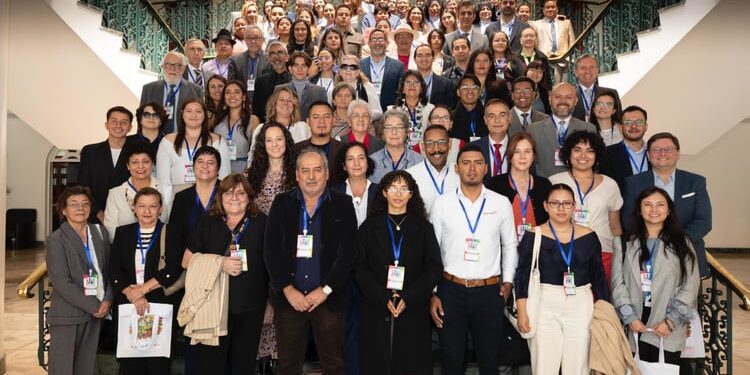The Diplomat
This week, the city of Quito hosted the fifteenth Ibero-American Civic Meeting, one of the meetings prior to the XXIX Ibero-American Summit of Heads of State and Government, which will be held on November 14 and 15 in Cuenca (Ecuador).
The meeting is configured as a space for dialogue and reflection on fundamental issues for civil society, such as the state of democracy or social participation, and was held under the motto ‘Innovation, Inclusion and Sustainability’.
Ministers of State, as well as delegates and representatives from all of Ibero-America participated in the forum with the aim of promoting the exchange of ideas and strategies on participation, sustainability and the role of organizations in democracy. Their contributions will be transferred to the Ibero-American Summit in Cuenca.
Ecuador’s Vice Minister of Foreign Affairs, Elizabeth Moreano, said that since her country assumed the pro tempore presidency of the Summit, it has organized meetings, forums, ministerial conferences, as well as this meeting, with the aim of promoting dialogue, cooperation and promoting joint actions with civil society actors in favor of the peoples of the region.
Moreano indicated that these spaces have become transcendental by generating concrete proposals that translate into real benefits for citizens.
For his part, Ecuador’s Vice Minister of Government, Esteban Torres, emphasized that the meeting wanted to offer answers to challenges in the region, including “the worst drought crisis that Ecuador has experienced in the last 60 years” and that there are a series of climatic reasons behind it that are worth discussing.
“Ibero-America is a concept that unites us all, it unites us historically, it unites us by heart and of course, it allows us to think of solutions, of answers to problems that we experience every day,” Torres said.
Martín Rivero, representative of the Ibero-American General Secretariat, emphasized the importance of these spaces for civil society participation that allow for putting on the table issues that later become of interest in political agendas, such as climate change, gender violence or democratic quality.
For her part, the representative of the articulating committee of the Ibero-American Civic Meeting, Maite Serrano, stated that “the action of a new Ibero-American social pact that allows us to face crises from a human rights and feminist perspective, (…) will only be possible if we have a strong, active civil society with effective participation mechanisms.”
This space brings together, according to Serrano, 32 national and regional platforms that represent more than 2,600 organizations from twenty-two countries, as well as various cooperation agencies, companies or ambassadors, among others. Humberto Salazar, representing the articulating committee, the National Dialogues platform and the Esquel Foundation, expressed the importance of, in the face of global problems affecting States, launching transformation processes that recognize the interdependence of nations.






